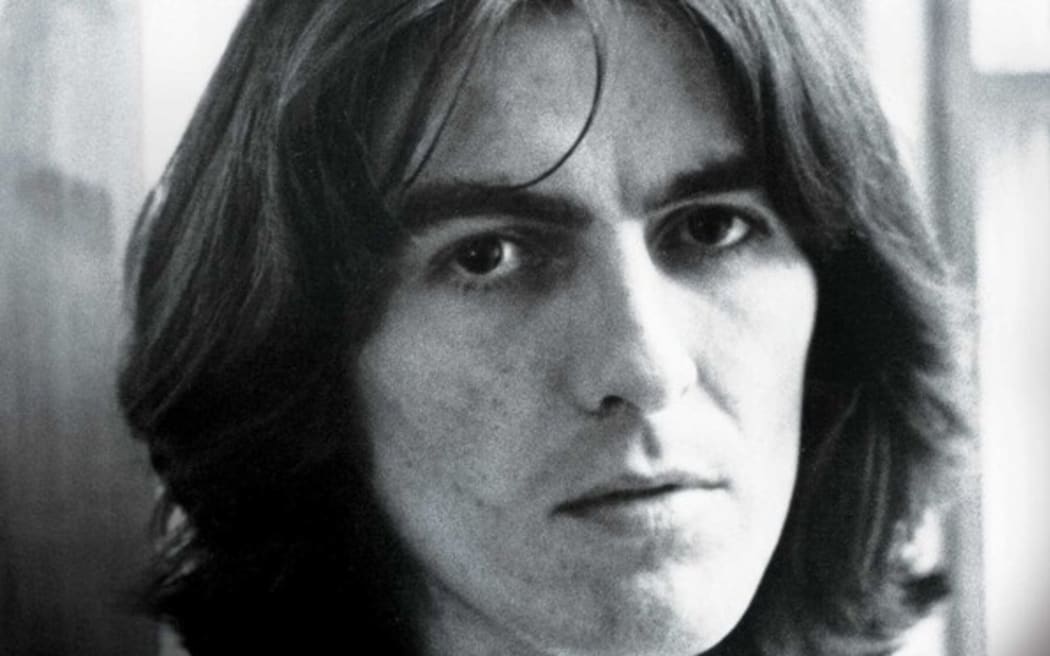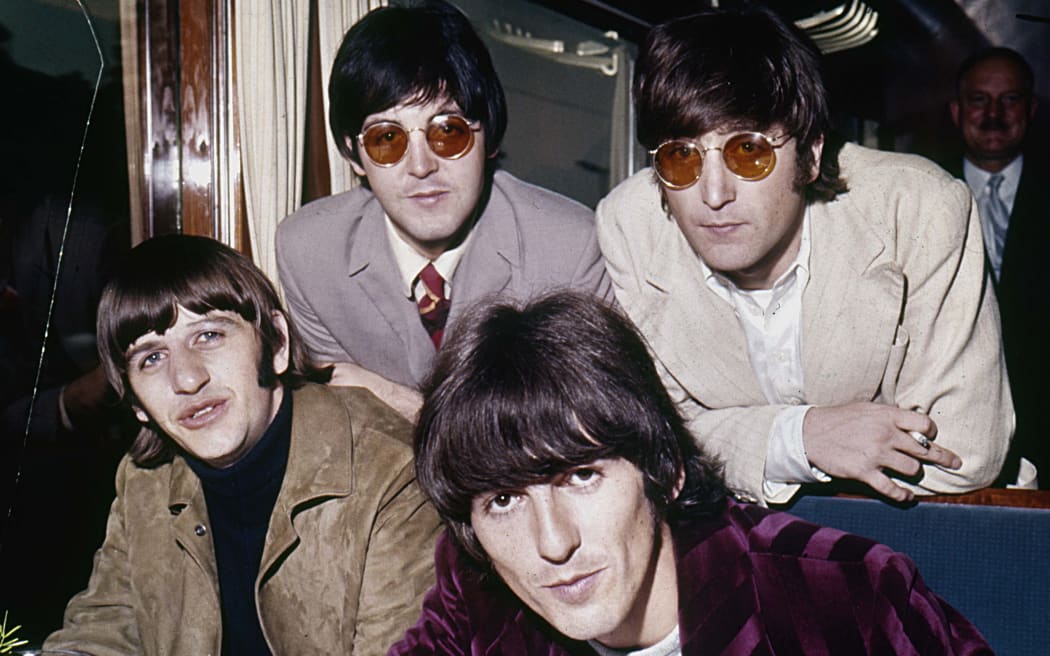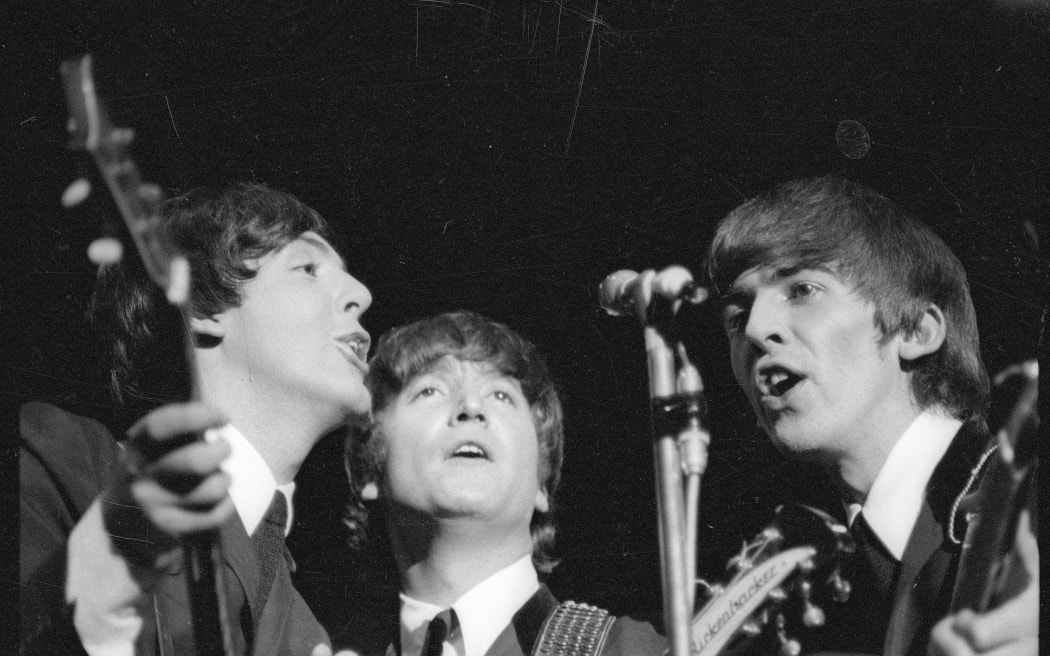
Photo:
Novelist and playwright Phillip Norman has written a new biography about George Harrison's life.
His previous books on The Beatles are considered by some as definitive.
Having already written biographies of many musical greats including Mick Jagger, Elton John and Eric Clapton, Norman has now tackled 'the quiet' Beatle with George Harrison: The Reluctant Beatle.
Norman told Sunday Morning that there is a lot George Harrison did not get credited for which he should have.
Harrison joined McCartney and Lennon's early group 'The Quarry Men,' just when it was about to be disbanded.
"George was determined to keep them together, " Norman said.

Photo:
And he managed to do that. He took them to a club in Liverpool's outskirts and it was there they solidified into the Beatles.
Harrison has also been credited for igniting the Rolling Stones' career. He casually mentioned to Dick Rowe that they were going to be the next big thing and said Rowe should see them playing live at the Railway Hotel in Twickenham.
Rowe soon signed the Stones to Decca Records.
In his book, Norman also discussed how admiration for the Beatles suddenly turned into a 'frenzy' in the early 1960s.
"It was really firstly the sound of very young women making a noise that had nothing to do with the music...a tidal wave of adolescent emotion waiting to break," he said.
"I call George the reluctant Beatle; he wasn't a reluctant musician, he was a very very dedicated musician but he hated it when this awful wailing started. They couldn't hear themselves and the audience couldn't hear the music."
It was pop hysteria driving the Beatles, and laying at the heart of it was very young women.
Norman said the Beatles were lucky in their timing.
"They went to an amazingly right destination by all the wrong routes."
Up until the 1960s, the US had never acknowledged any competition from overseas popular music.
Meanwhile, in the UK, pop hits had been American imports or bands covering American hits.

Harrison, front, was never a fan of the excesses of Beatlemania. Photo: Collection Roger-Viollet / Roger-Viollet via AFP
"Suddenly, all that was shaken by this awful blow to the American psyche, which was the assassination of John F. Kennedy in 1963," Norman said.
"When the Beatles arrived, it was not only that they made a very wonderful new energetic sound which didn't exist by then in pop music, they also looked so bizarre and they had this charm.
"Charm is what lives on in their music to this day."
Hard day's night
You had to be tough to be a Beatle.
"Their body clocks were ruined, they had day for night for the rest of their lives because of the ridiculous schedule they had to keep," said Norman.
In Hamburg's red light district at the start of their career, they played shows all night.
They toured, made singles and albums, all the while believing that their time in the spotlight would be short.
In the midst of Beatlemania, Harrison struggled along compared to the output of Lennon and McCartney.
"George only had George and it was very intimidating," said Norman.
"He had very little confidence.
"For instance, his great contribution that is overlooked, is that the absolutely unique and original intros and solos that he played on all the Beatles tracks, that everybody now remembers and can sing by heart, George was absolutely integral to that, coming up with the little guitar breaks in minutes."
Lennon was originally against Harrison joining the Beatles. McCartney suggested Harrison, then only 14 years old, should join for his talented guitar playing.

The Beatles in Wellington in 1964. Photo: The Dominion Post Collection, Alexander Turnbull Library
Playing in the Beatles also meant playing a part, Norman said.
"You had to be smiley and charming and lovely, however uncomfortable, or inconvenienced you were."
The year 1966 heralded the Beatles' last tour.
But Harrison had the "inextinguishable last laugh," Norman said.
His first album All Things Must Pass contained many songs that weren't allowed onto the Beatles records and it outsold Lennon and McCartney's own debut solo albums.
Harrison finally became the number one Beatle.
Meanwhile, one of his Beatles songs, 'Here Comes The Sun,' has gone to clock up a staggering more than one billion streams on Spotify, the most of any Beatles song.
Long after his death from cancer at just age 58 in 2001, "quiet Beatle" George Harrison's legacy is just as loud as Lennon and McCartney's.

